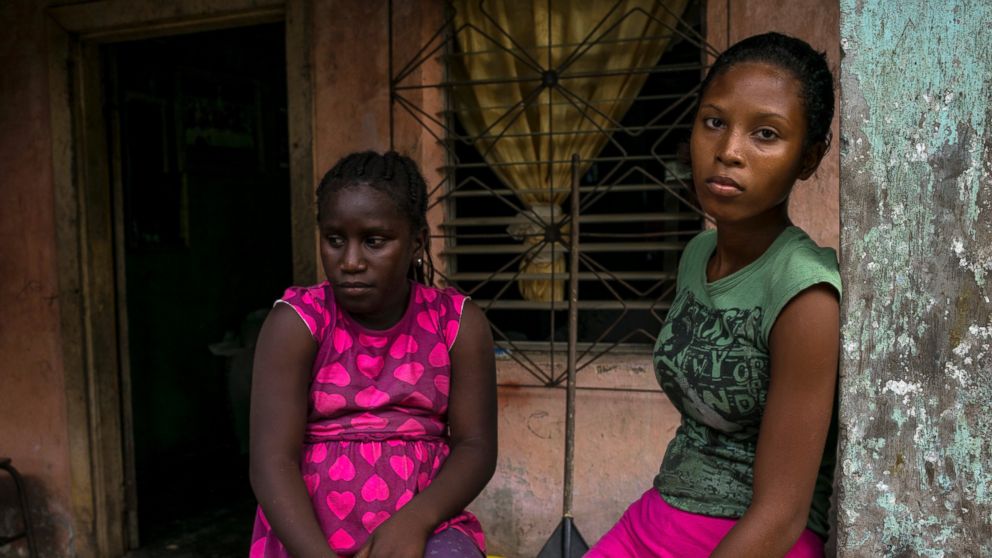Trump administration ends protected status for 86,000 Hondurans in US
After nearly two decades, the Trump administration is ending special immigration status for around 86,000 Hondurans who live in the U.S. - status granted following Hurricane Mitch in 1998.
Critics called the decision "heartless."
It's the latest Temporary Protected Status that the administration is ending, forcing more than 430,000 people who were legally living in the U.S. to either find a way to change their immigration status, leave the country, or now live here illegally.
The administration argues the original qualifications for many of these programs no longer exist, but supporters charge that it's an inhumane decision that will disrupt the lives of tens of thousands.
So far, the Department of Homeland Security, which oversees the program, has ended it for El Salvador, Haiti, Nepal, Nicaragua, and others. Last November, the administration had delayed a decision on Honduras, saying that then-acting Secretary Elaine Duke required additional information on the conditions on the ground and that Honduras had formally requested an extension.
The 86,000 Hondurans now have 18 months – until January 5, 2020 – to leave or find a new legal immigration status and stay, such as marriage or sponsorship.
"This is disastrous for me, as it is for my children in Honduras. If I'm deported I won't be able to help them in college. When I'm not able to provide for them, what choice will they have except to come here?" Orlando Lopez, a TPS holder in Miami, said in a statement through the advocacy group America's Voice Education Fund. "They are practically sending me to my death."
Termination of the program "is required pursuant to the Immigration and Nationality Act," DHS said in a statement, noting the improvements in dealing with the aftermath of a hurricane two decades ago that originally precipitated the designation.
"The Secretary determined that the disruption of living conditions in Honduras from Hurricane Mitch that served as the basis for its TPS designation has decreased to a degree that it should no longer be regarded as substantial," the statement said, referring to Secretary Kirstjen Nielsen. "Since the last review of the country’s conditions in October 2016, Honduras has made substantial progress in post-hurricane recovery and reconstruction from the 1998 Hurricane Mitch."
But many critics were quick to condemn the decision, calling it "heartless," "baffling," "immoral and unwise," and "unconscionable."
"These are people who've spent nearly two decades working hard, paying taxes, and contributing positively to communities across the United States," Geoff Thale, Vice President for Programs at the Washington Office on Latin America, a human rights organization. "Forcing them back to Honduras could very well spark another wave of migration from the region."
One senator even says that he has seen documents that show the Trump administration went against the advice of the U.S. embassy in Honduras.
"The facts on the ground are indisputable -- Honduras is one of the most dangerous, economically weak countries in the world, with rampant crime, human rights abuses carried out by security sector officials, and widespread impunity. It is a willful disengagement from reality to believe that Honduras can safely absorb tens of thousands of new residents," Sen. Ben Cardin, D-Md., said in a statement.
Cardin has introduced legislation with fellow Democrats Sen. Chris Van Hollen and Dianne Feinstein to provide a pathway to legal permanent residency for TPS holders, although it is unlikely to move any time soon.
"Our last hope lies with Congress, that they'll find a way to build legislation to keep us together in the U.S.," Jailene, a 16-year-old in New York whose mother is a TPS recipient, said through America's Voice Education Fund statement, too. "I can't imagine life without my mom."
Honduras itself said in a statement, "We deeply lament" the decision, although it is a sovereign matter for the U.S. to decide. Returnees "are and always will be welcome in their homeland, where they will be received with open arms," and "their reintegration into our society will be facilitated," the country's foreign ministry added, according to the Associated Press.
Hondurans with TPS that remain until 2020 will be required to re-register with DHS to keep their ability to work legally in the U.S. until their status expires.
The decision to end TPS for Honduras alone could cost the U.S. more than $700 million in lost revenue, $10.9 billion in GDP over a decade, and $1.6 billion in Social Security and Medicare contributions over a decade, according to a 2017 report by the immigrant advocacy group, the Immigrant Legal Resource Center.
ABC News's Geneva Sands and Quinn Scanlan contributed to this report.




